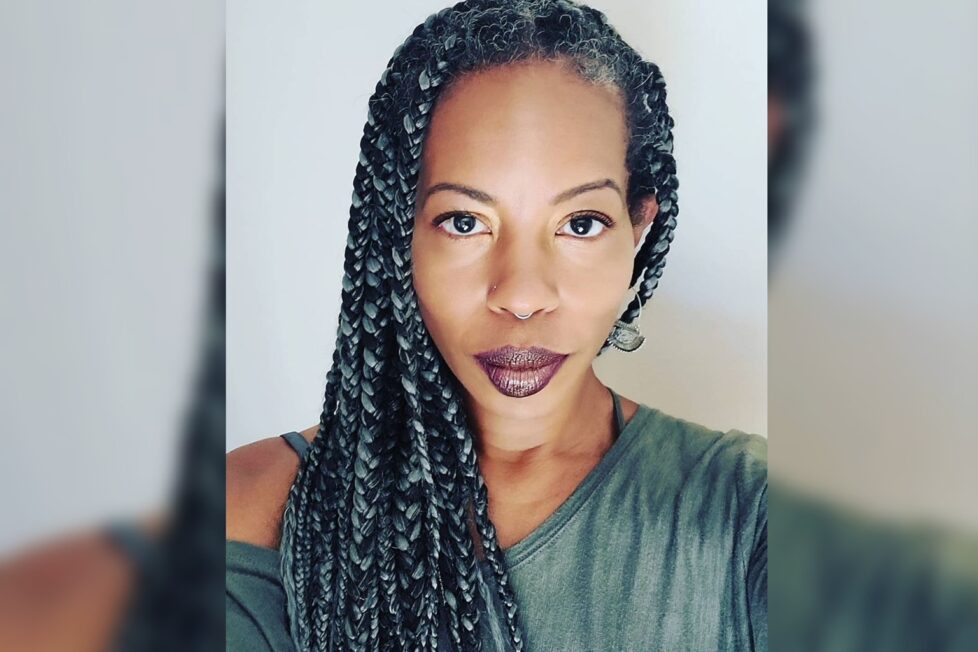Intergeneration Herbs and Remedies for Fall: An Interview with Clinical Herbalist Ayo Ngozi, MS


It’s that time of the year again… Fall. Cooler weather brings seasonal herbs and illnesses (Flu season). Many from the South have experienced grandmothers or great-grandmothers who had secret family recipes and remedies to prevent and help against sickness. In honor of Intergeneration Month, let’s explore some ancestral medicine.
I interviewed Ayo Ngozi who is a clinical herbalist, educator, and artist whose work integrates herbal practice, African diaspora spiritual technologies, and emergent strategy. A descendant of farmers and healers from Virginia, she naturally discovered her green thumb as a child. Yet, she didn’t formally study herbalism until young adulthood when her oldest son had asthma. His illness and chronic asthmatic episodes eventually led her to take measures into her own hands and work with herbal remedies when conventional medicine didn’t seem like a sustainable solution. It was at that point that she decided to continue her education at the Maryland University of Integrative Health where she graduated with a Masters of Science in Herbal Medicine. She is a guest instructor and advisor to several herbal schools and programs and a co-creator of the Black Mystery School and Planting Reparations projects.
BB: How do you feel your formal education in herbalism has shaped your ancestral practice?
AN: Although I’m grateful for what I’ve learned because I am practicing those skills, but I’ve had to spend a lot of time undoing a great deal of what was taught in that program due to the colonial perspective. Looking through a Western scientific lens consequently ignored indigenous science of the African diaspora. These spiritual technologies our ancestors knew were passed down orally without “formal education”. Such practices have been successful for hundreds of years and deserves respect and reverence also.
[SCROLL BREAK!!! Bayou Beat News can also be found in PRINT at a store near you. Click the link below to check out our E-Edition!]
BB: Fall is here so how did your ancestors from the south use herbs to prevent and help with colds and flu?
AN: In my family, my grandmother who lived to be 105, told me that sassafrass was a main herb used in the family concoction. The leaves were used as gumbo file. In October the roots were dug up and the bark of the root was also used to make a tea for colds or as a preventative before getting sick. The kids would line up to drink tea from the pot. A lot of these herbs were used for “cleansing” the blood or the liver. They were considered “blood builders” which helped you to develop a stronger constitution to prepare the body for whatever viruses it was exposed to. Sassafrass is a tonic (an herb used to help tone and restore systems in the body for optimal immunity).
Castor oil was another popular remedy. It was used externally and internally. It was used as cold packs for inflammation and skin ailments. Internally it was used a laxative. The midwives and birth workers used castor oil to also assist in labor.
Fire cider, which is a vinegar-based concoction with different types of roots and herbs that are placed in a jar and stored. The longer it’s stored, the stronger it is. By 3 weeks, it reaches it’s peak. If taken on a regular basis, it assists the body with fighting respiratory viruses and aids in probiotic population that is vital for gut health.
Food is also used to maintain health. The “pot liquor” from a pot of greens and bone broths were also taken to strengthen one’s immune system.
More “Ikeoma’s Eye” articles
Juneteenth message of understanding: You are descendants of the ‘strongest of the strong’
RIP to the phenotype of ‘The Strong Black Woman’: A synopsis of cape burning
BB: Can you suggest any recipes that people can use as preventatives this fall?
AN: Fire cider: peppers, onions, garlic, ginger, cayenne, black pepper, thyme, oregano, and horseradish. You can also add herbs like elderberry. Focus mostly on warming herbs. Put all of these in a glass jar fill with apple cider vinegar. Put the ingredients in a blender then store in the original jar. Let it sit in a cool, dry place. Take as a preventative or as needed for a cold. It will break up congestion and mucus. Avoid if you have acid reflux.
Elderberry tea or syrup: Take it dried and make a tea by boiling the water then let it simmer about 15 mins and drink. The syrup can be made a couple of ways. You can use honey. Mix the tea 1:1 (1 cup tea to 1 cup honey). Some people also used sugar. People used what they had access to.
BB: How can people learn more from you?
AN: I am a co-creator of Black Mystery School which is an online skill-sharing community based on African diaspora practices. It is online on IG @black.myster.school or www.blackmysteryschool.org
On October 2, I will be doing a half day intensive, “The Herbalist Studio,” at the Wild Ginger Herbal Center in Maryland. We’ll be working with herbs in different ways other than health such as pine for basketry and weaving, working with plant dyes, and making incense. For more information follow me on IG @ayo.herbalist. and at www.thecreativeroot.net.
